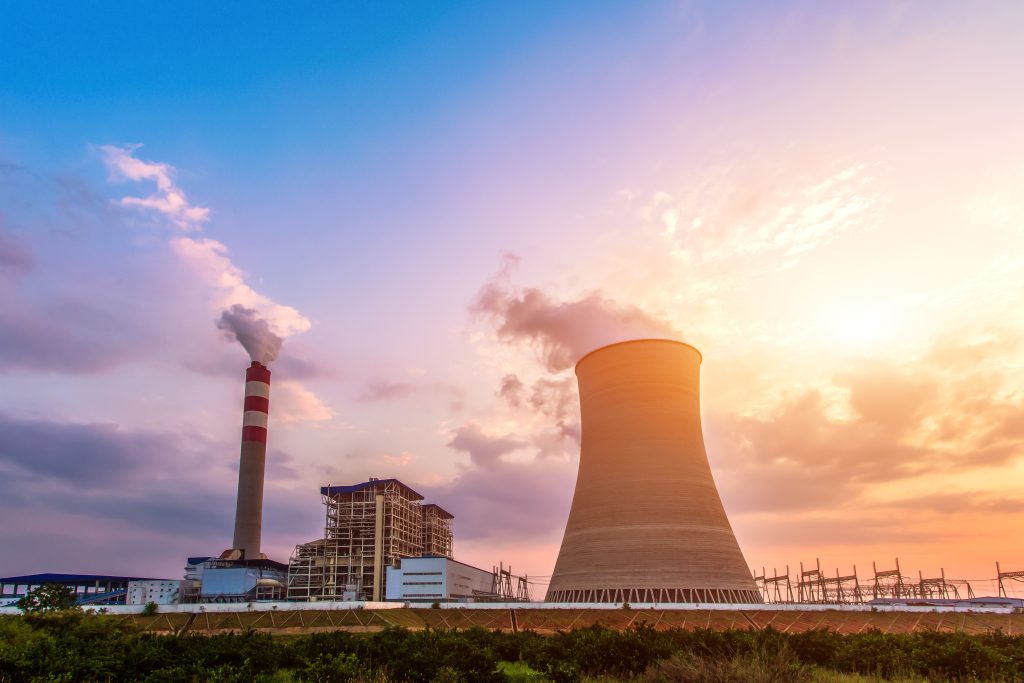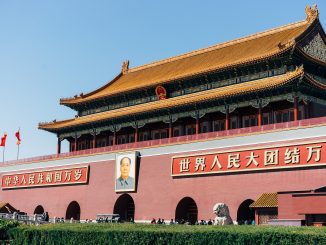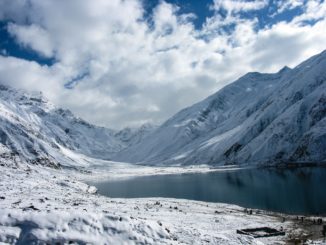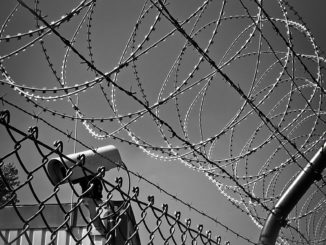
Physical and psychological impact of possession of nuclear assets defy geographical borders.
Adoption of peaceful use of nuclear energy has been the subject of scrupulous debates in
the recent decades. On one hand nuclear energy gives many advantages to the user nations.
For example, nuclear energy helps mitigate the carbon emissions and economizes on long
term extensive energy consumption costs. Resultantly, nuclear energy enhances the quality
of life by facilitating clean air and certainly has an overall positive environment aspect. Many
countries benefit from this clean source of energy through extensive usage for medicine and
surgical purposes, sterilization of food and materials, and space exploration, etc.
There are almost equal number of challenges to the nuclear usage for peaceful purposes.
These challenges, besides the physical and material safety, security and safeguard of the
nuclear facilities, include extensive physical protection, and heavy initial investment, human
security risks especially during a natural or man-made disaster. However, probably one of
the biggest challenges is the inclusion of all stakeholders in the inception and operational
phases of adopting nuclear energy. Nuclear domain demands highest and flawless standards
of professionalism, control measures, besides a robust safety, security, and safeguard
culture.
Foregoing in view, this paper discusses the vital aspects of nuclear safety, security and
safeguard including the authority/control over nuclear assets and facilities and the influence
of global and regional nuclear culture on some of the aspiring nuclear countries. Finally, the
paper briefly discusses nuclear Malaysia and the impact of cultural impediments on its
nuclear aspirations.
National strategic cultures vary from one nation to another. Ken Booth defined the concept
of strategic culture as the national “traditions, values, attitudes, patterns of behavior,
habits, symbols, achievements and particular ways of adapting to the environment and
solving problems with respect to the threat or use of force”. This definition encompasses
the conceptualization of the strategic decisions taken at the national level. Incidentally, Asia,
besides being most thickly populated region of the world, includes few of the most heavily
nuclearized and declared nuclear weapons states such as Russia, China, India and Pakistan.
In case of India and Pakistan the strategic security managers have effectively securitized the
nuclear domain. The nuclear trajectories in this part of South Asia are defined by the
strategic culture in conjunction with the material, domestic and technological factors.
Authors have argued that the securitization of the nuclear culture is articulated through the
realist paradigm, resulting in the production of cultural insecurities analyzed in the
constructivist paradigm. The constructivist paradigm not only influences the domestic policy
decisions, but rather it crosses geographic boundaries impacting the broader global, and
regional policies and insecurities in the adjacent regions and countries. Such insecurities are
mitigated by exertion of authority and control over the nuclear options. Here a question
arises regarding the efficacy of excess of governance structures or controlling authorities in
the countries where the nuclear energy is being used or the countries which are outright
armed with the nuclear weapons. This aspect certainly acts as the guiding principles in such
countries ensuring robust safety security and safeguard measures.
Yest another aspect meriting attention is the national culture of military chauvinism. The
1998 nuclear explosions/tests both by India and Pakistan, for example, received widespread
condemnation, disappointment, shock and in certain cases outrage. However, as argued by
Darren C. Zook, at domestic levels the entire exercise was viewed as refutation of the “the
third world culture” and labels of “third rate powers”. This nurtured an era of nuclear
dogmatism whereby a race started between these two nuclear rivals regarding outpacing
each other in range of military and policy incentives.
The debate over nuclear issues in South Asia is much broader and goes beyond being the
question of strategy, technology, or military might and transposes into “national culture”.
The politico-military culture of India and Pakistan fostered a culture of chauvinism which has
been more confrontational rather than collaborative. Countries looking for peaceful nuclear
applications may however, opt more appropriately for the later.
Within the safety, security and safeguard domain of the nuclear facilities debate is
dominated by the extents and limits of “authority” and control. Who in the hierarchy of the
nuclear chain will be responsible for what and how will it be managed, are some of the vital
questions to be asked during the policy processes. The debate sometimes also leans
towards more “authoritarian” approach necessitated by flawless nuclear protocols,
procedures and operations. Control measures and robust policy implementation might be
some of the desirable outcomes of opting for more authoritative approach. Whereas
absence of authority tends to have a more laxed culture and prioritizing intangibles such as
individual motivation, national pride, and stakeholders’ support for nuclear options, etc.
However, in any case the need to have robust safety, security, and safeguard measures
cannot be undermined.
It is interesting to note that control exercised (with or without authoritarianism) may or may
not ensure implementation of the safety security and safeguard culture. For example, India
claims to have reasonably effective nuclear safety, security and safeguard culture, however,
unauthorized personnel have been repeatedly caught carrying uranium/radioactive
materials. One such incident happened during May 2021, when Maharashtra police caught
two individuals carrying highly radioactive uranium worth ₹ 21.3 crores (almost $2.9
million). Similarly, another breach of nuclear safety, security and safeguard was repeated
more recently during February 2022. Among eight perpetrators were two Indians who were
caught carrying 2.5 KG uranium like substance and were trying to sell the materials at the
rate of ₹ 350 million per KG. From the “insider connivance” perspective, it was revealed
during the investigation in the latter case that one of the Indians had his in-laws working in
an Indian uranium mine almost 20 years prior to this arrest.
On the other end control measures could fail purely due to human error in few of the most
advanced nuclear control systems as well. During 2007 a US pilot flew a B-52 “mistakenly
armed with six nuclear warheads” from Minot Airforce base, North Dakota. The plane
carrying Advanced Cruise Missiles was flown for three hours over many US states before it
safely landed at Barksdale Airforce Base in Los Angeles. This and above-mentioned incidents
signify the adaption of nuclear safety security and safeguard culture across the globe from
end-to-end; i.e., from mining to the end user deployments.
Both authoritarianism and laxed cultural reflections in nuclear domain need to be balanced
by the aspirants. The national temperament in some of the SE Asian countries such as South
Korea is nonconfrontational, yet “perfectionist” in nature. Although such an “error-free” or
“zero error tolerance” culture is good for nuclear facilities, it effectively curbs and hinders
reporting – one of the most important preventive measures.
Malaysia is yet another similar example, where the need for adopting nuclear option for
energy has been identified. However, the nation is extremely cautious and careful in
outright acceptance. Malaysia is self-sufficient in fossil fuels and energy needs. Availability
of sufficient fossil fuels which meet national requirements, effectively relegates the urgency
to opt for nuclear energy. Relatedly, Saudi Arabia is a country holding more fossil fuels than
most of the nations combined, however in a forward leaning approach the nation has
decided to opt for nuclear energy. Saudi Arabia has enough inland uranium to start
operating nuclear facilities and aspires to start using nuclear energy facilitating
collaborations for electricity production and much needed desalination of saltwater. Other
aspects on which Saudi Arabia hopes to capitalize on include job creation, supporting
national energy security development of closer international ties with the collaborating
nations.
Malaysia prefers to have an inclusive approach towards the nuclear (culture) policy by
including general population as the major stakeholders. From a personal observation point
of view, it is evident that they are very enthusiastic about opting for nuclear energy. Despite
that, nuclear Malaysia continues to benefit from the small-scale facilities which are mostly
used for commercial salination, and sterilization facilities. Ultimately, it will be the national
culture and character which will decide if the nation may or may not opt for the PNE.
However, Malaysia could benefit from the best practices in Pakistan and robust culture of
nuclear safety, security and safeguard. As per the NTI Nuclear Security Index Pakistan has
been improving the security and control measures over the years. Passage of new
regulations helped Pakistan improve +8 points in 2014, +2 in 2016, and +6 in 2018. The
increase in the 2014 score was due to the improved due to on-site physical protection
regulations. As compared to other countries score improvement in the security and control
measures category, Pakistan increased by +25, the second highest ever since the launch of
index since 2012. This ranking certainly poses serious challenge to President Biden’s
judgement and clearly refutes latest accusation declaring “Pakistan with nuclear weapons as
one of the most dangerous places in the world”.
![]()




Be the first to comment